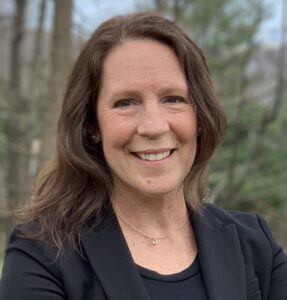Master of science student hopes to use biostatistics training to power work on cancer, Alzheimer’s
When Aanika Schueler learned in early 2025 that she was accepted to Harvard T.H. Chan School of Public Health’s master of science program in biostatistics, the first thing she did was call her mom on FaceTime. They cried together, overjoyed at the good news.
“I knew that if I had the opportunity to study at Harvard Chan School, I would be able to learn from so many experts in the field and build amazing relationships that would hopefully last a lifetime,” said Schueler, who began her studies this fall. Since then, she’s taken a deep dive into data science, found supportive peers, and—beyond academics—found running buddies.
As an undergraduate, Schueler majored in statistics with a concentration in biology. In the summer of 2024, she was an intern at the pharmaceutical company Kyowa Kirin, where she saw how statistical analysis shapes decisions in drug development. During her internship, Schueler wrote a script using the programming language R to assist with data analysis for a treatment being developed for cutaneous T-cell lymphoma. She was excited to learn how statistical modeling could play a role in improving patient outcomes, particularly for a rare form of cancer.
“I’ve always really been interested in how statistics can be used to transform complex data and serve as a tool to investigate biomedical phenomena,” she said.
Schueler found that the 60-credit SM program in biostatistics was the perfect fit for her interests. The program, which full-time students complete in one-and-a-half years, prepares students to design research studies in medicine and public health, analyze and interpret quantitative data using modern computational methods, and collaborate with research scientists in a wide variety of public health disciplines.
This fall, Schueler has especially enjoyed a class on applied regression methods taught by her adviser, Erin Lake, lecturer on biostatistics. Her R programming skills have been strengthened in her introductory data science course, which is taught by a co-inventor of the R programming language—Robert Gentleman, principal research scientist in the Department of Biostatistics.
A ‘fun and supportive environment’
Outside of the classroom, Schueler has enjoyed connecting with her peers. One of her favorite activities this semester was attending the Longwood Block Party, where she met students from Harvard Chan School, Harvard Medical School, and Harvard Dental School.
She has also joined fellow running enthusiasts in the Harvard on the Move Run Club. “It’s really nice to have a consistent group to run with,” Schueler said. “It makes the miles go by so much faster and adds a sense of community outside of academics.”
When she was considering graduate programs, what stood out about Harvard Chan School was “how passionate everyone seems about what they’re doing,” Schueler recalled. “That’s the kind of environment that I knew I wanted to be in in my studies.” She added, “It’s been very fun and people have been so supportive, which has made the transition to graduate school even better.”
Schueler is also the recipient of financial aid, which she said enables her to “take advantage of everything that Harvard Chan School has to offer.”
After graduation, Schueler would love to return to the pharmaceutical industry and apply what she’s learning to help improve patient and treatment outcomes.
“In the long term,” she said, “I’m really interested in working on cancer and Alzheimer’s disease—working on things like personalized treatment, enabling earlier cancer detection, and drug development.”
Last Updated
Featured in this article
Robert Gentleman




